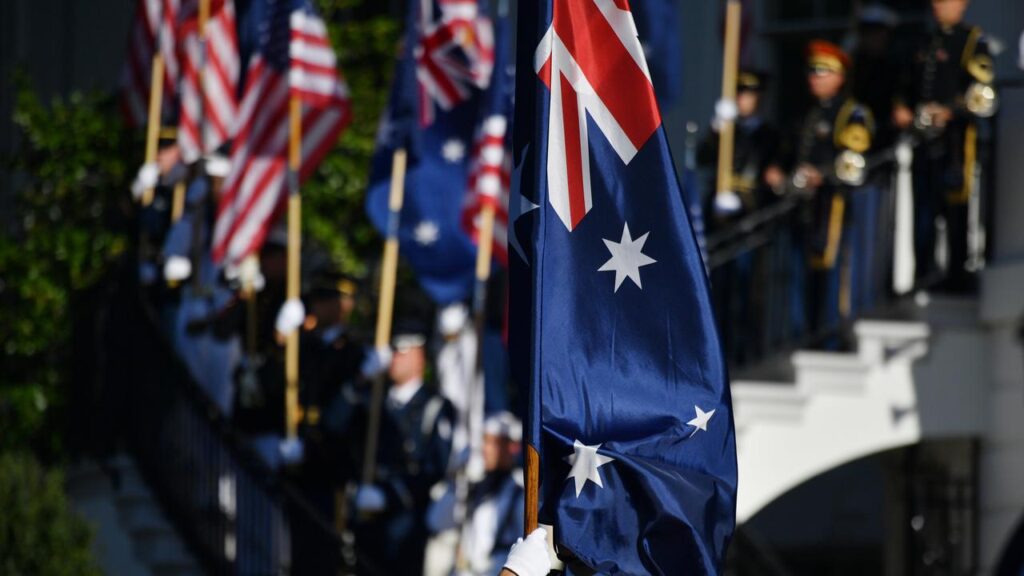Submarine deal left treading water after key US talks
Kat Wong and Andrew Brown |

The fate of Australia’s nuclear submarine program remains uncertain despite the foreign minister’s attempt to sell the benefits of the agreement to her US counterpart.
The trilateral AUKUS agreement, which would provide Australia with nuclear submarines under a partnership with the US and UK, featured in Foreign Minister Penny Wong’s talks with US Secretary of State Marco Rubio in Washington.
But the meeting did little to quell the coalition’s concerns the future of AUKUS could be in peril with the Pentagon soon to conclude a snap review into whether the agreement aligns with President Donald Trump’s “America First” agenda.
Senator Wong said they had a good discussion about AUKUS and its benefits for all countries, but she sidestepped questions about whether the US was still a reliable partner under Mr Trump.
“We understand that President Trump has a different view of how America is to be in the world – we respect that,” she told reporters in the US capital on Wednesday morning, Australian time.
“We also recognise how important our partnership is and we believe that is understood here in Washington.
“This is not a recent relationship, it’s a relationship where the alliance has been in the hands of governments of both political persuasions and it will always be so.”

Opposition defence spokesman Angus Taylor said it was “absolutely essential” Americans understood the value of AUKUS to them.
“We are still no clearer about where this AUKUS review is heading, what’s expected of us and how we jointly make the most of the AUKUS arrangements,” he said.
Senator Wong and Senator Rubio spoke about deepening co-operation through AUKUS, trade, regional security and the supply of critical minerals.
Some had expected the American to touch on Australia’s military budget, after the US urged Canberra to lift spending to 3.5 per cent of gross domestic product.
But Senator Wong said the Secretary of State did not raise the issue.
Discussions instead centred on regional stability more broadly, with the two noting it was unfortunate to be meeting against a backdrop of global conflict.
“It has never been more important for us to harness our collective strength for peace, stability, for prosperity in the Indo-Pacific,” Senator Wong said.
Senator Rubio said the US and Australia had a “great partnership” and, while it was important to discuss ideas and concepts, the next steps were “concrete action”.

Their one-on-one was part of the Quad foreign leaders’ summit, which also included meetings with Japan’s foreign minister and India’s external affairs minister.
It’s the second time in six months the four-nation diplomatic partnership group has met for in-person talks.
While Senator Wong has met with her US counterpart on several occasions, Prime Minister Anthony Albanese has been under pressure to secure a meeting with Mr Trump to negotiate an exemption from tariffs on Australian goods.
The two leaders were due to speak on the sidelines of the G7 summit in June in Canada, but the meeting was scrapped at the eleventh hour when Mr Trump left early due to instability in the Middle East.

Senator Wong said Mr Rubio expressed regret about the missed opportunity and the two agreed to reschedule the meeting, although a date was yet to be set.
The foreign minister added she advocated “strongly” for the removal of Mr Trump’s baseline tariff of 10 per cent on all Australian goods sent to the US, and a 50 per cent tariff on steel and aluminium.
But Mr Taylor said the foreign minister would return to Australia “empty-handed”.
“No real progress on tariff barriers, no progress on setting up a meeting – it’s anyone’s guess as to when that’s going to happen,” he said.
AAP